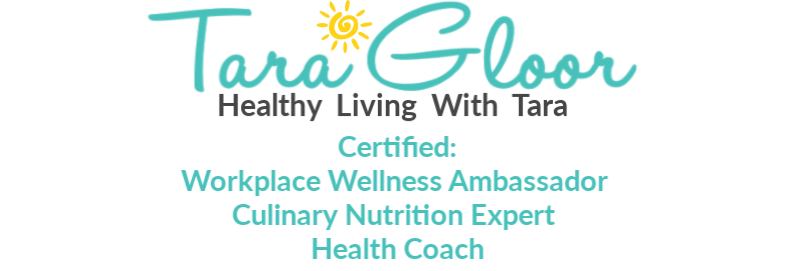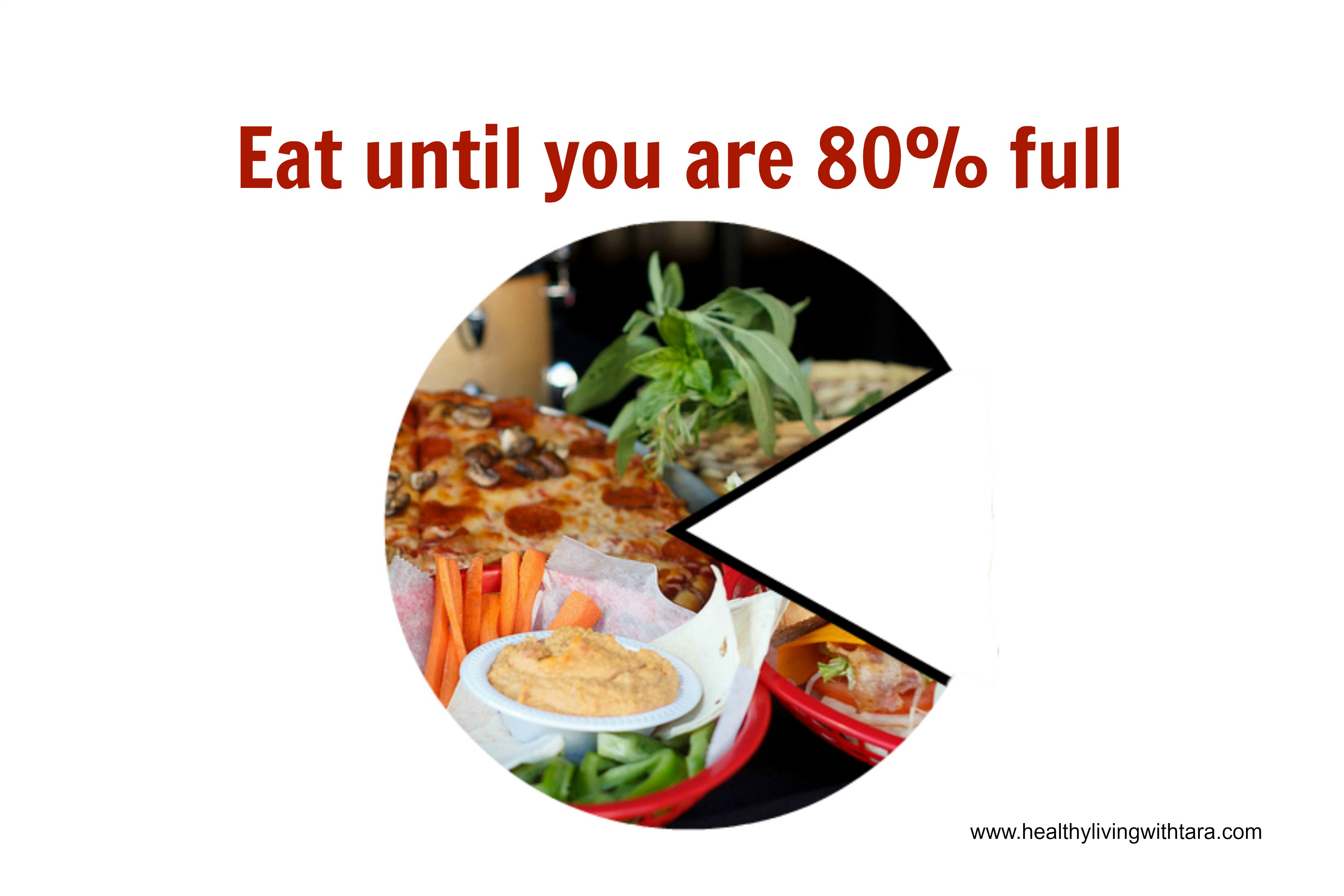Today’s healthy habit is Hara Hachi Bu!
I’m sure you’re wondering what on earth that is….not to worry, I wondered the same thing not too long ago. Hara Hachi Bu is a Japanese philosophy that they have been following for generations. Simply put, they only eat until they are 80% full. They eat until they are no longer hungry instead of eating until they are full. People living in Okinawa Islands off Japan enjoy exceptionally long and healthy lives. One reason may be that they practice this form of self-restraint and self-discipline.
Most of us are used to eating until we feel full, which is past satiation. This is often where our extra weight gain comes from. It’s important to understand why we overeat. Once we can establish a pattern, we are better equipped to prevent it from reoccurring and can focus on positive permanent change.
At each meal, try leaving the plate before you are full and see how you feel. Eat until you are no longer hungry, instead of eating until you are feeling full. This does involve some mindful eating.
Only by eating slowly and becoming more aware of how you feel will you be able to know when you are 80% full.
The reason that eating this way can result in weight loss is actually perfectly logical. Apparently, our brain takes 20 minutes to recognize that our stomach is full. As a result, if you keep eating until you feel ‘full’ then you have, according to scientists, over eaten by about 20%.
When you follow Hara Hachi Bu, you stop when you perceive that you are full. However, because your brain is a little slow recognizing fullness, when you are 80% full you are actually 100% full. At that point, you have eaten exactly the right amount of food to prevent your stomach from stretching beyond its normal size.
Eating beyond the point of true fullness causes our stomach to stretch, leading to weight gain over the years.
I admit it does take some getting used to and can be quite a challenge. You may feel a little awkward leaving food on your plate at first, but try it for a few days and make note of how you feel. Remember the importance of keeping a food journal. This is another great example of when it would come in handy.
Of course, there is more to the Okinawan diet than simply stopping before you are full. They feast on healthy foods, such as fresh vegetables, and fish, and they avoid processed foods, along with other self-care rituals. But, it would appear that Hara Hachi Bu plays quite a significant role in their longevity and lack of age-related health problems.
Have you tried Hara Hachi Bu?
Thanks for reading & keep well,
Tara

